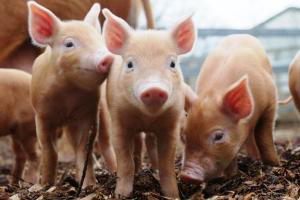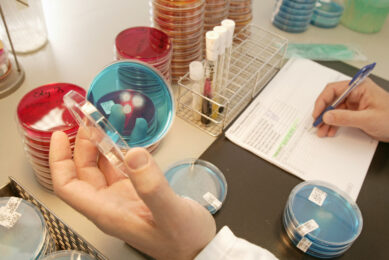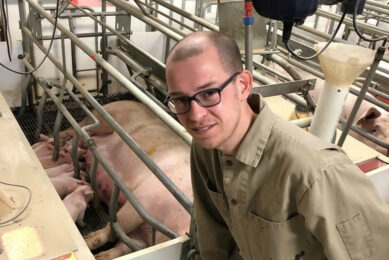Enzyme for wine could be antibiotic alternative for pigs

Studies by US Department of Agriculture (USDA) scientists have found that a naturally occurring antimicrobial enzyme currently being used in food and beverage applications may also prove useful as an antibiotic alternative for improved feed efficiency and growth in pigs.
William Oliver, a physiologist at USDA’s Agricultural Research Service in Clay Center, Nebraska and his colleagues began investigating lysozyme, which is used in food and beverage applications such as cheese- and wine-making, in 2010.
Piglets’ diets tested
In a recently published trial they compared the growth rates and weight gains of two groups of 600 piglets placed on one of 3 diet regimens:
- corn/soybean meal and specialty protein,
- the same as 1 with lysozyme added,
- containing the antibiotics chlortetracycline and tiamulin hydrogen fumarate rather than the lysozyme.
Piglets’ housing during trial
The groups were also kept in weaning pens that had either been disinfected or left uncleaned since the last group of animals had occupied them. The latter was done to stimulate chronic, or long-term, immune activity, including the production of cytokines, which divert nutrients away from growth in swine and result in slower weight gain.
12% faster growth in piglets
The results showed that piglets on lysozyme- or antibiotics-treated feeds grew approximately 12% faster than untreated pigs—even in uncleaned pens, suggesting that the treatments successfully ameliorated the effects of indirect immune challenge in the animals.
Pressure on to find antibiotic alternatives for use in pigs
Swine producers are currently under pressure to eliminate sub-therapeutic antibiotic use throughout the production cycle, according to William Oliver, a physiologist at USDA’s Agricultural Research Service in Clay Center, Nebraska. Finding safe and effective alternatives to traditional antibiotics will give swine producers viable options in the event the antibiotics are removed from use, he added.
Antibiotic-resistant bacteria sicken more than 2 million people in the United States each year and kill over 23,000 directly.











